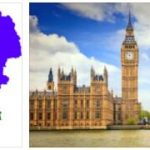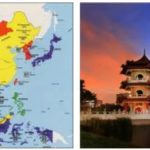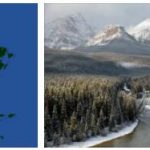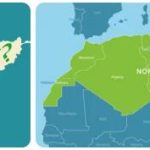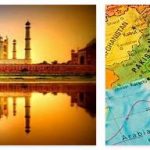Even in the 21st century, Africa is an incomprehensible and mysterious continent for many travelers from Europe. North America and Asia. Indeed, even scientists who have lived for many years on the “Black Continent” do not always understand the traditions, customs and cultural characteristics of African peoples. See Africa abbreviations.
It should be concluded that Africa is as mysterious to modern Western people as the continent itself, as its name itself. Scientists still cannot say with certainty where the word “Africa” came from. Most historians believe that the ancient Romans called “Africa” the northern part of modern Africa, which was once part of the Roman Empire.
We all know about the famous ancient Egyptian pyramids. However, it turns out that there are even more pyramids in Sudan than in Egypt (and some of them are more beautiful than the Egyptian pyramids). At the moment, 220 pyramids have been discovered in Sudan.
Geography of Africa
Africa from the east and south is washed by the waters of the Indian Ocean, in the west by the Atlantic Ocean, in the northeast by the Red Sea, and in the north by the Mediterranean Sea. The continent of Africa includes numerous islands. The total area of Africa is 30.2 million square meters. km, including the adjacent islands (this is 20.4% of the Earth’s territory). Africa is the second largest continent on earth.
Africa lies on both sides of the equator and has a hot climate that ranges from tropical to subtropical. There are many deserts in northern Africa (for example, the world’s largest desert, the Sahara), and in the central and southern regions of this continent there are savanna plains and jungles. The highest temperature in Africa was recorded in 1922 in Libya – +58C.
Despite the fact that in the mass consciousness Africa is considered a “hot land where it never rains”, there are a lot of rivers and lakes on this continent.
The longest river in Africa is the Nile (6,671 km), flowing through Sudan, Uganda and Egypt. In addition, the largest African rivers include the Congo (4,320 km), the Niger (4,160 km), the Zambezi (2,660 km) and the Ouabi Shebelle (2,490 km).
As for the African lakes, the largest of them are Victoria, Tanganyika, Nyasa, Chad and Rudolf.
There are several mountain systems in Africa – the Aberdar Range, the Atlas Mountains and the Cape Mountains. The highest point of this continent is the extinct volcano Kilimanjaro (5895 meters). Slightly lower heights are at Mount Kenya (5199 m) and Margarita Peak (5109 m).
African population
Africa’s population already exceeds 1 billion people. This is about 15% of the total population of the Earth. According to official figures, the population of Africa is increasing by about 30 million every year.
Almost the entire population of Africa belongs to the Negroid race, which is divided into smaller races. In addition, there are several other African races – the Ethiopians, the capoid race and the pygmies. Representatives of the Caucasian race also live in northern Africa.
African countries
At the moment, there are 54 independent states in Africa, as well as 9 “territories” and 3 more unrecognized republics. See countries in Africa.
The largest African country is Algeria (its territory occupies 2,381,740 sq. km), and the smallest are the Seychelles (455 sq. km), Sao Tome and Principe (1,001 sq. km) and the Gambia (11,300 sq. km). km).
Regions
Africa is divided into 5 geographical regions:
- North Africa (Egypt, Tunisia, Algeria, Libya, Western Sahara, Morocco and Mauritania);
- East Africa (Kenya, Mozambique, Burundi, Madagascar, Rwanda, Somalia, Ethiopia, Uganda, Djibouti, Seychelles, Eritrea and Djibouti);
- West Africa (Nigeria, Mauritania, Ghana, Sierra Leone, Côte d’Ivoire, Burkina Faso, Senegal, Mali, Benin, Gambia, Cameroon and Liberia);
- Central Africa (Cameroon, Congo, Angola, Equatorial Guinea, Sao Tome and Principe, Chad, Gabon and CAR);
- South Africa – Zimbabwe, Mauritius, Lesotho, Swaziland, Botswana, Madagascar and South Africa).
On the African continent, cities began to appear thanks to the ancient Romans. However, many cities in Africa cannot boast a long history. However, some of them are considered among the most densely populated in the world. Now the most populous cities in Africa are Lagos in Nigeria and Cairo in Egypt, with 8 million people each.
Other major African cities are Kinshasa (Congo), Alexandria (Egypt), Casablanca (Morocco), Abidjan (Ivory Coast) and Kano (Nigeria).

